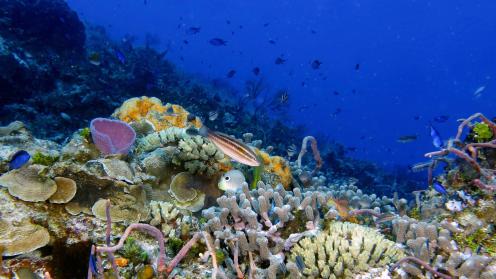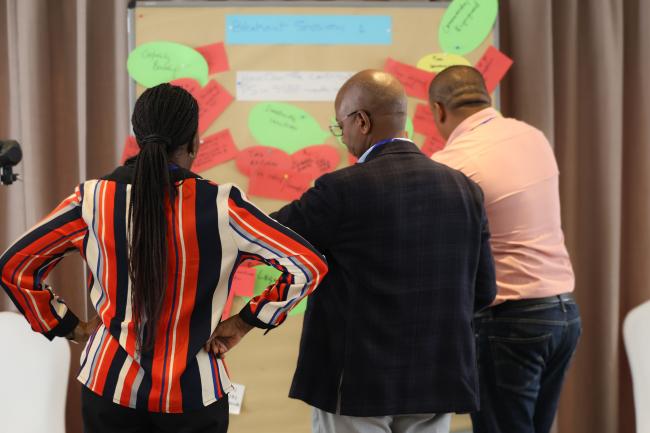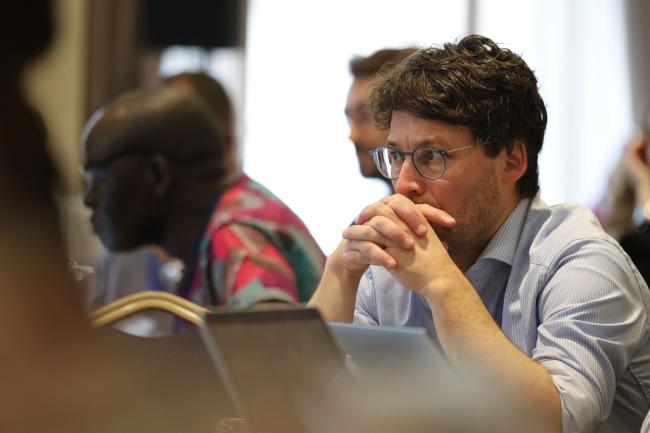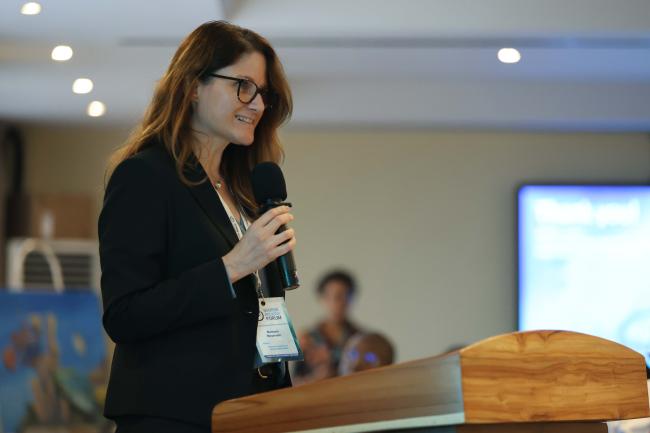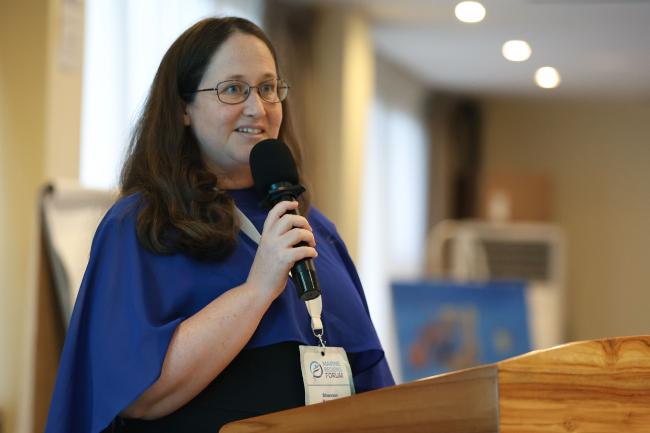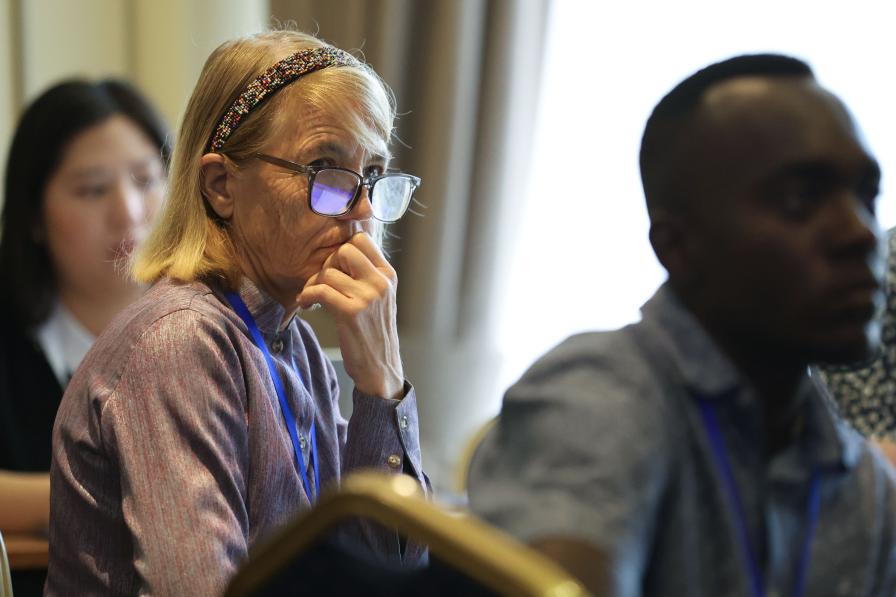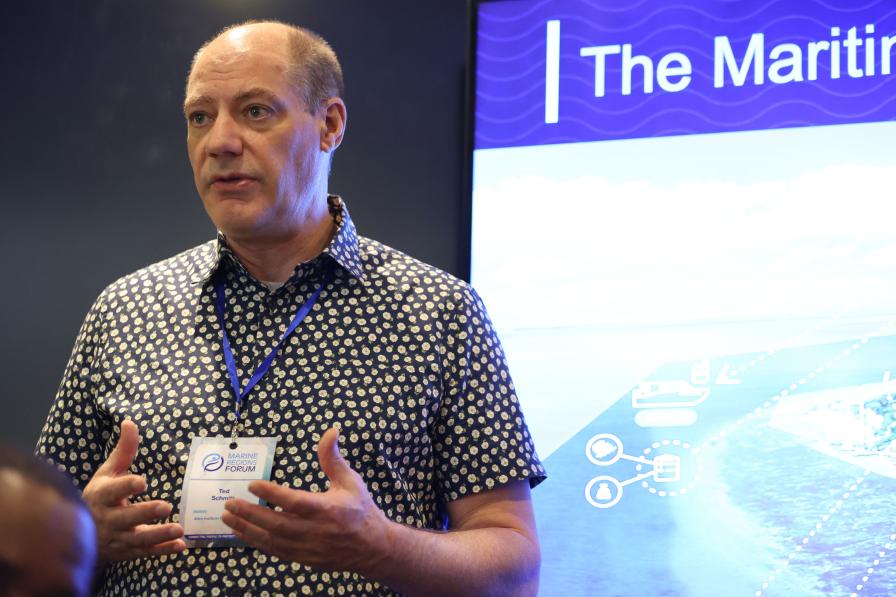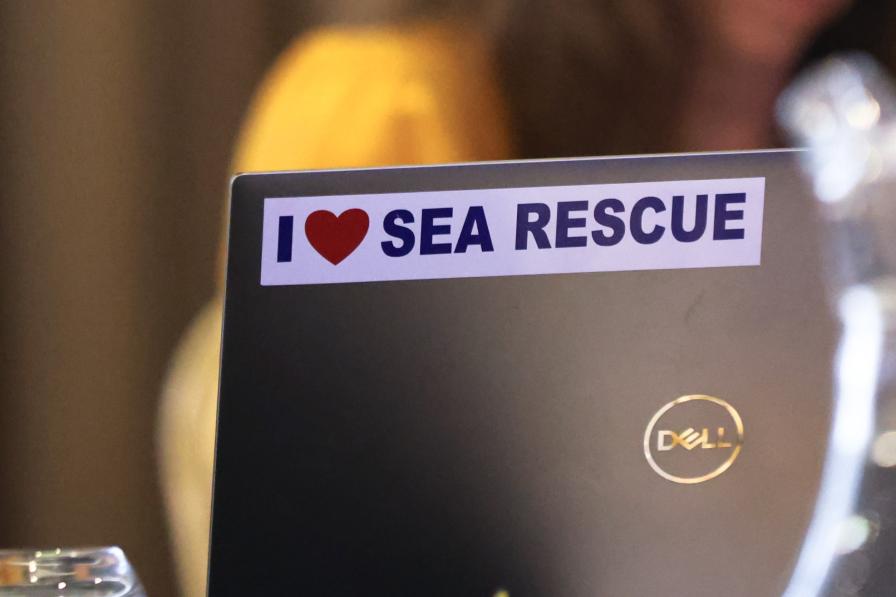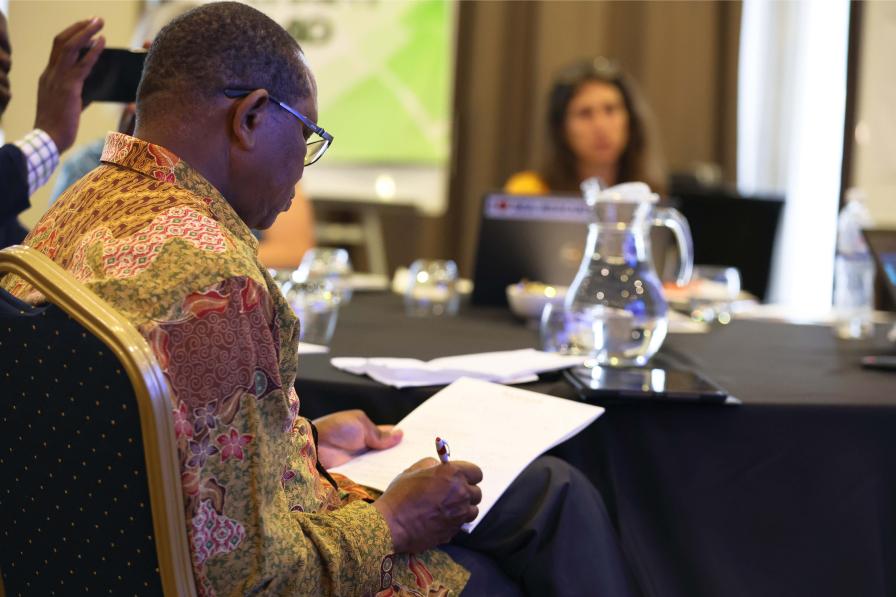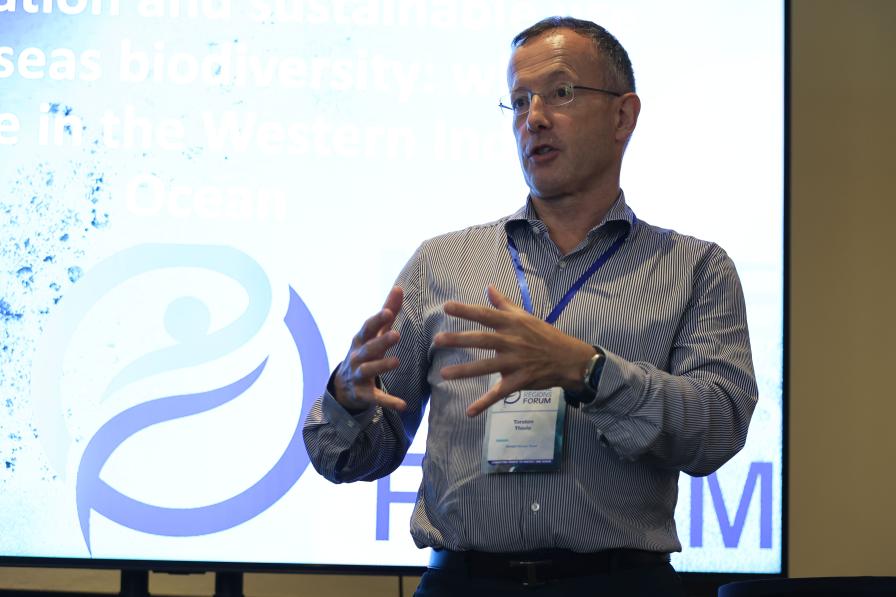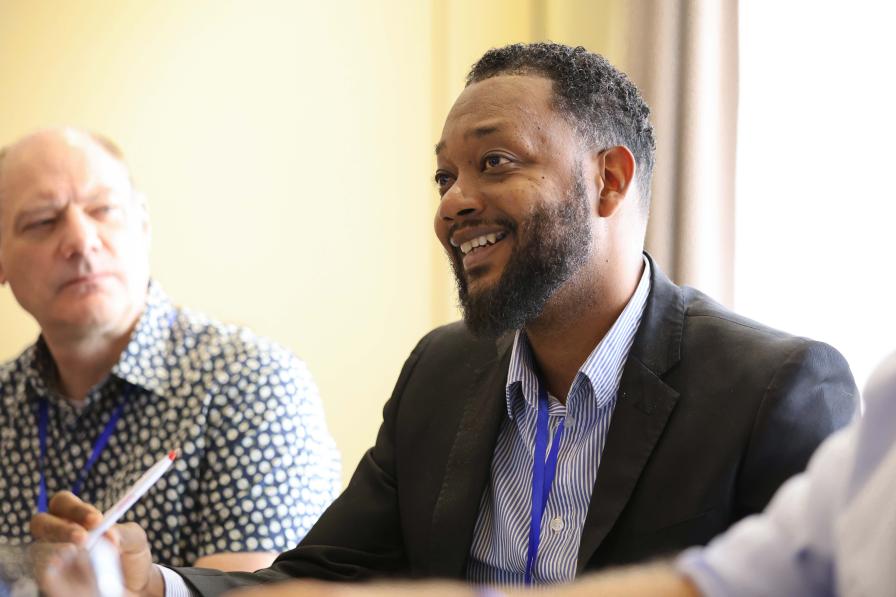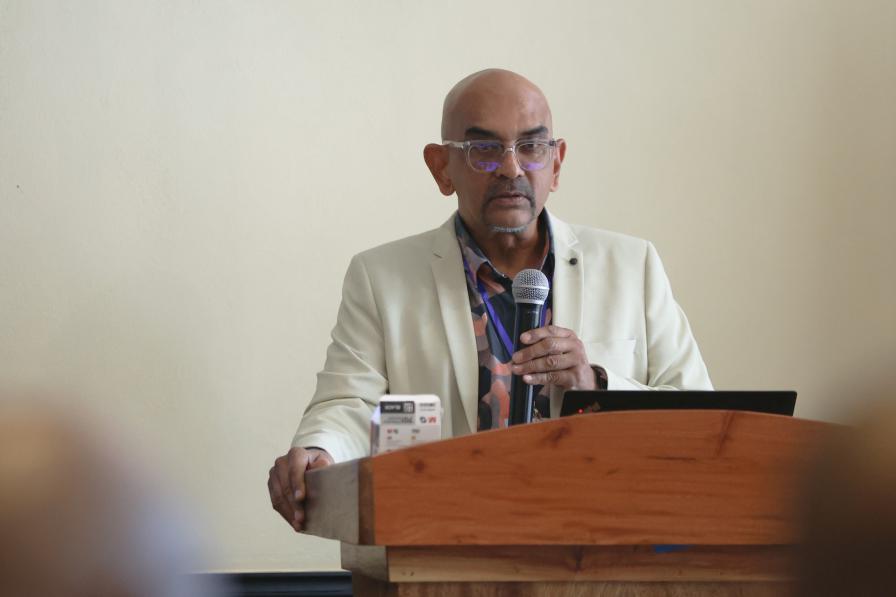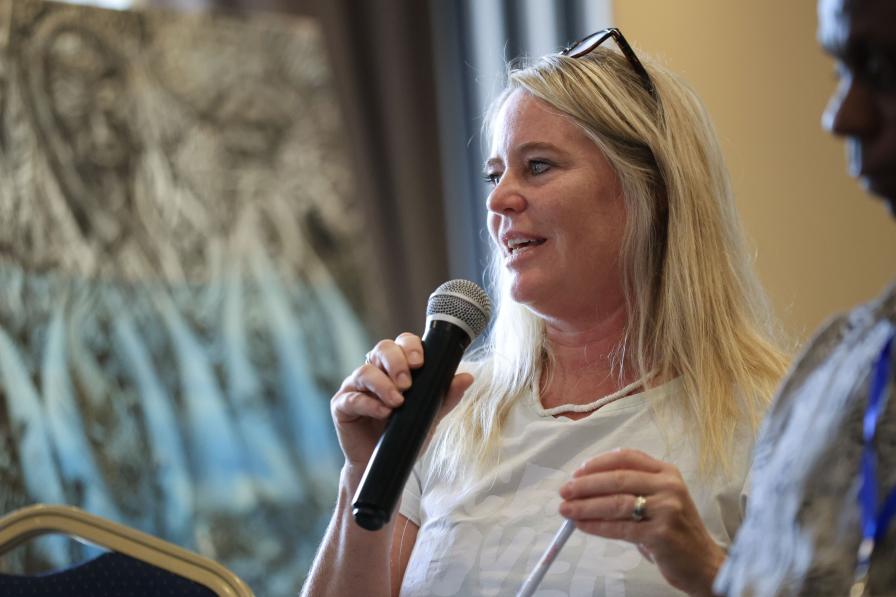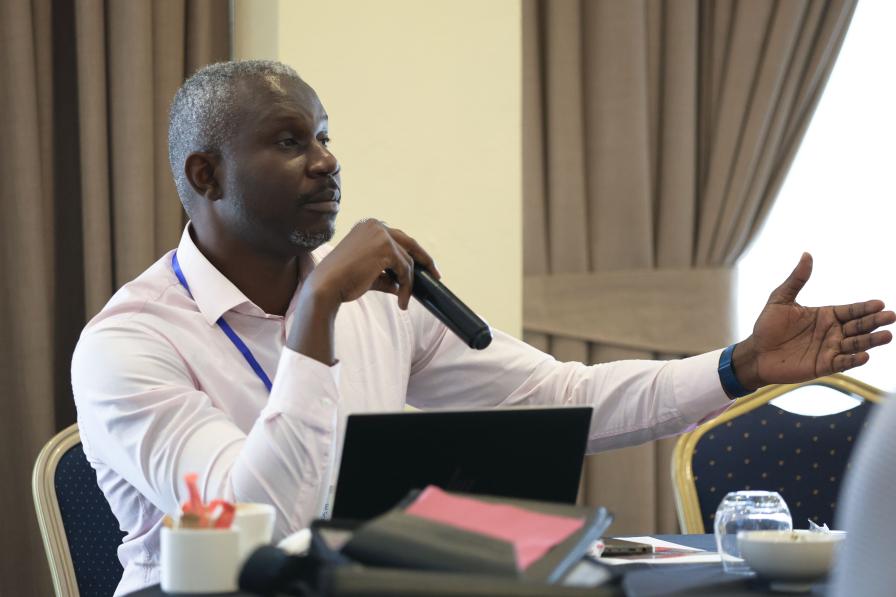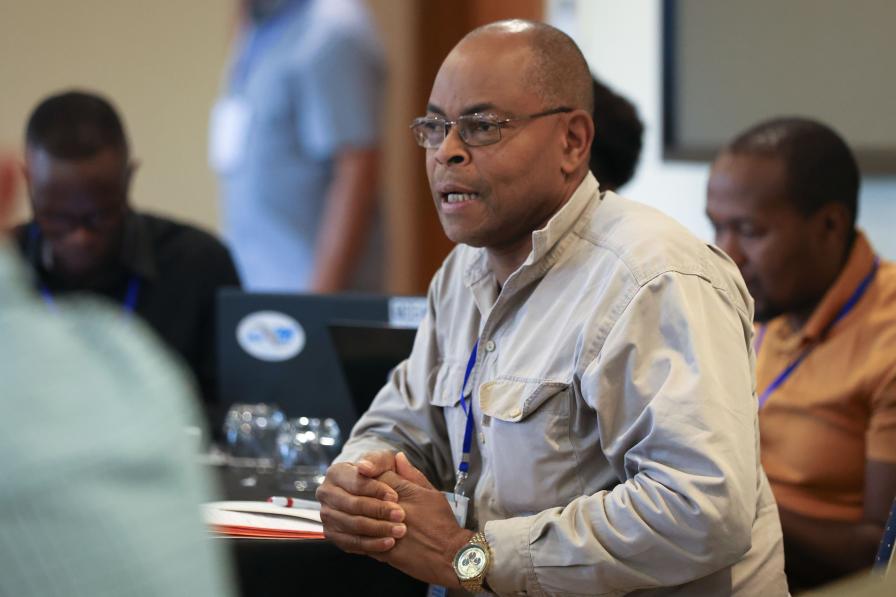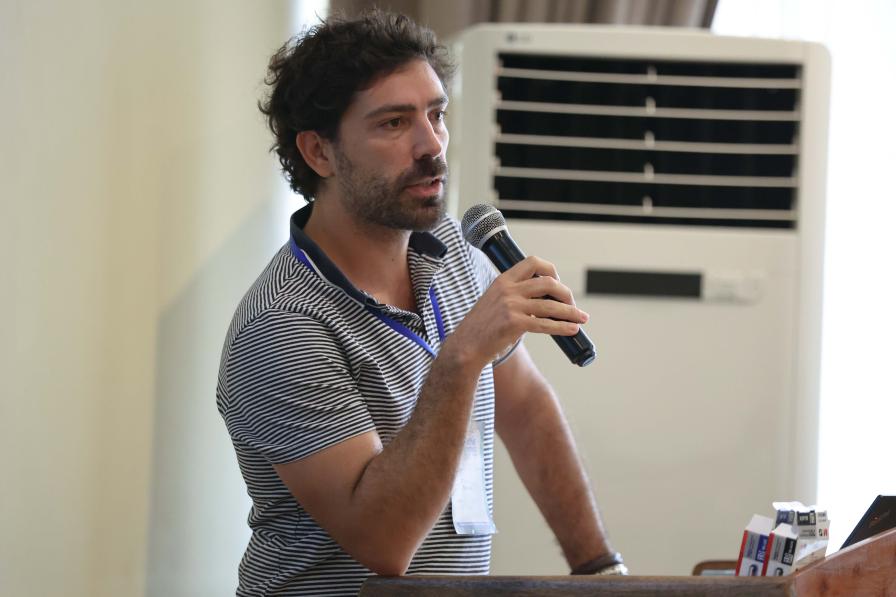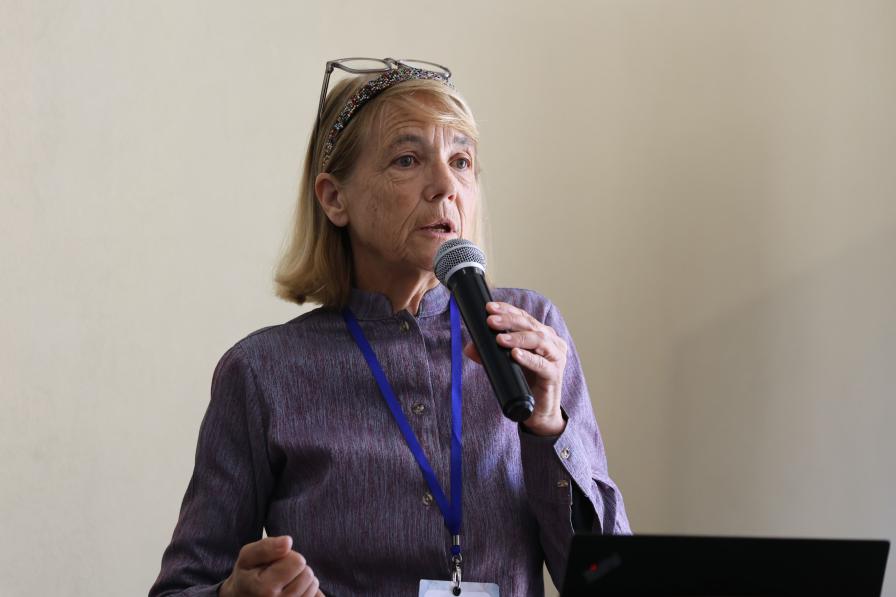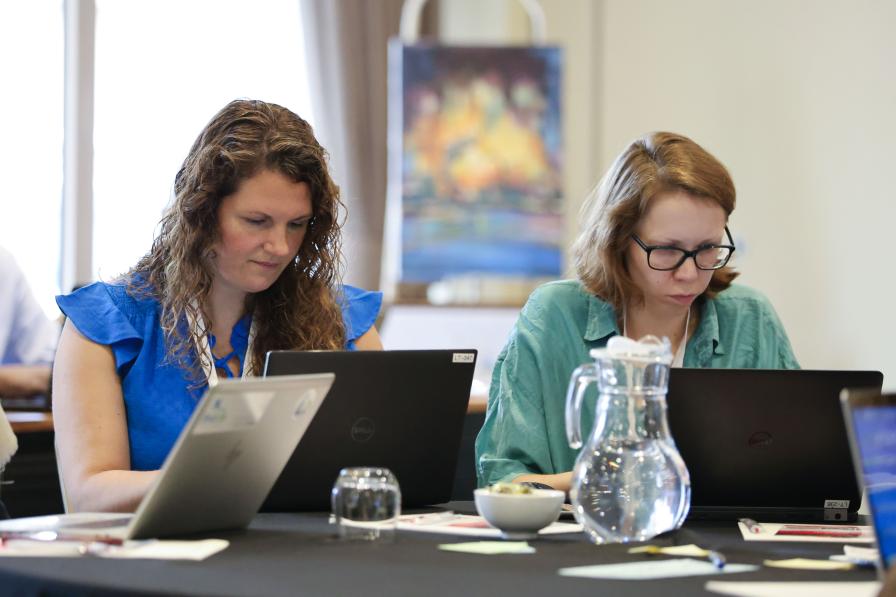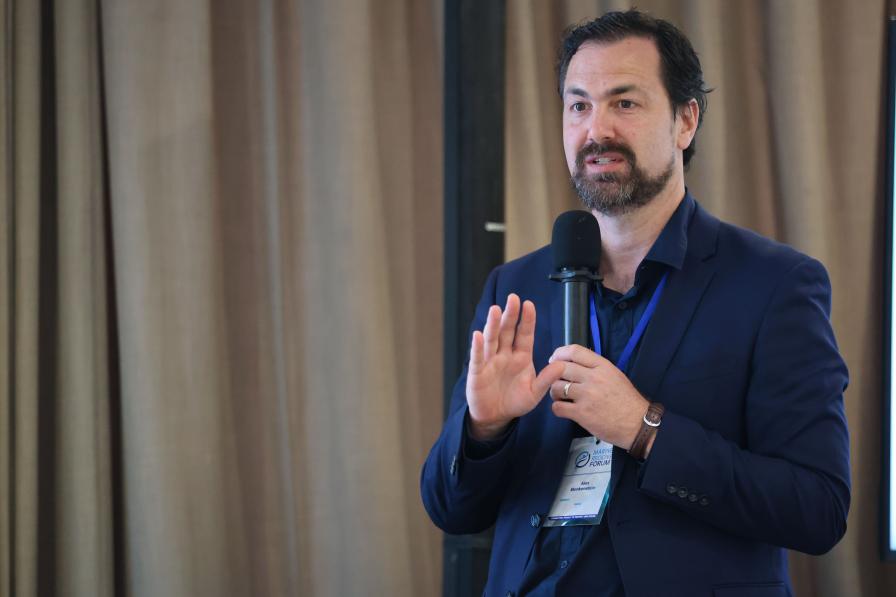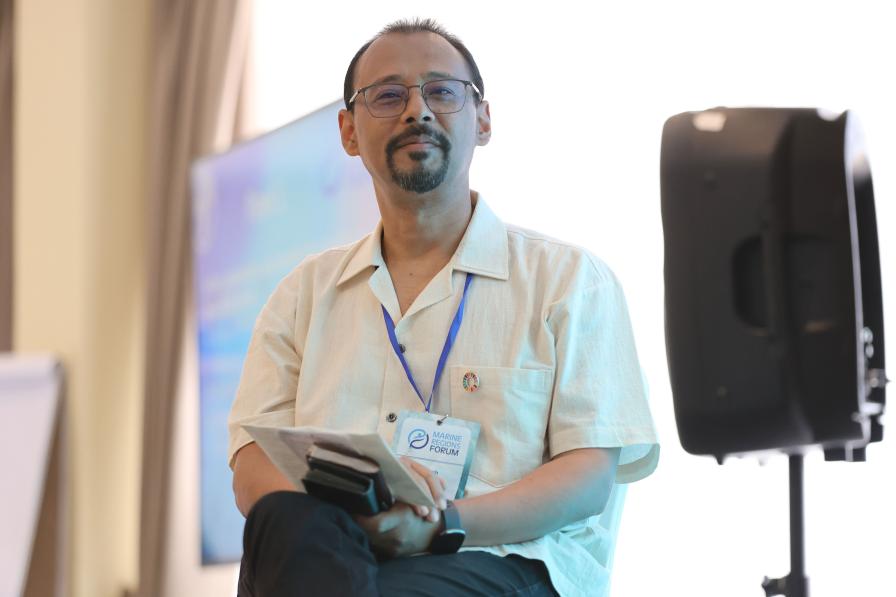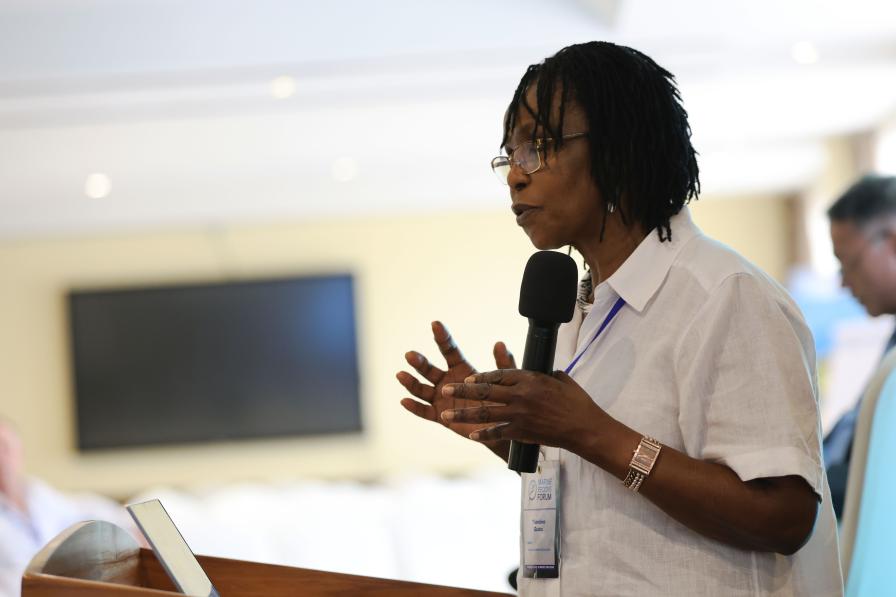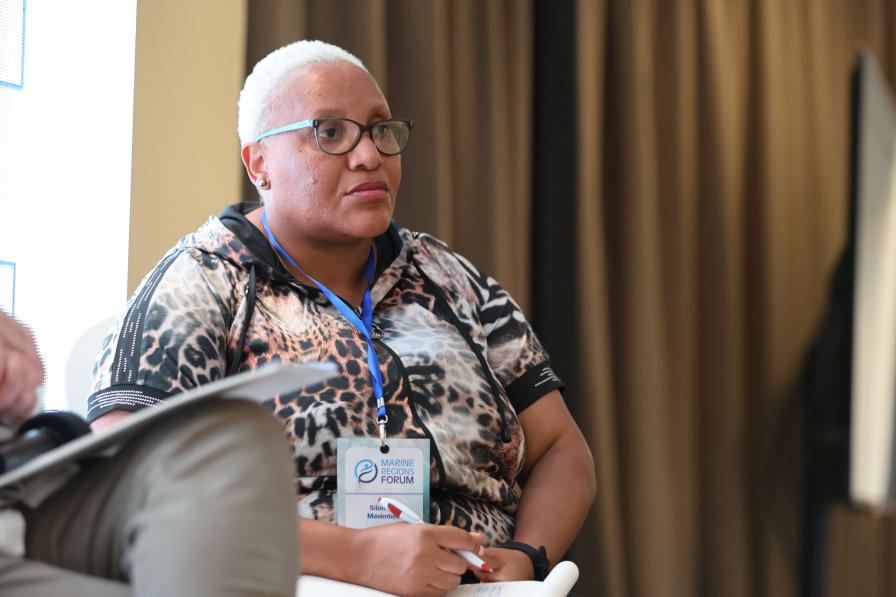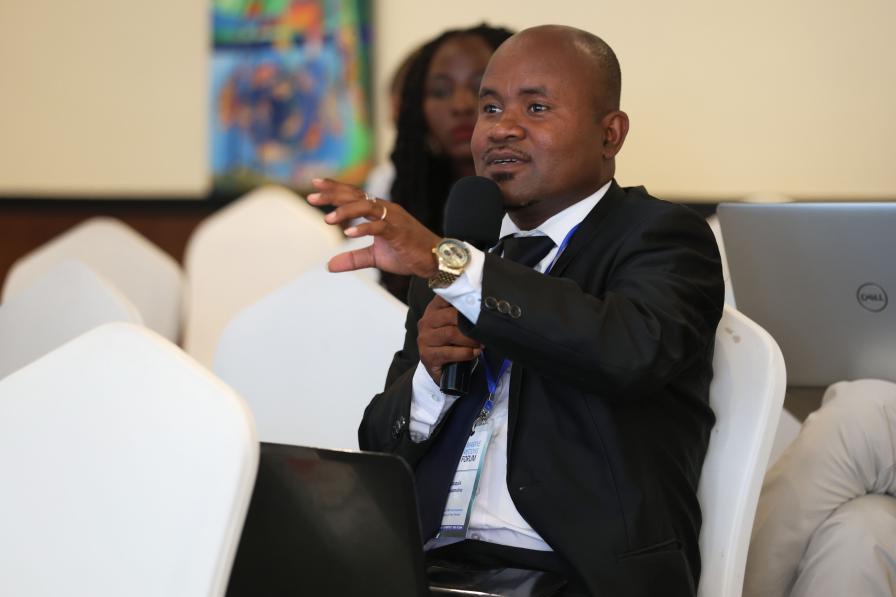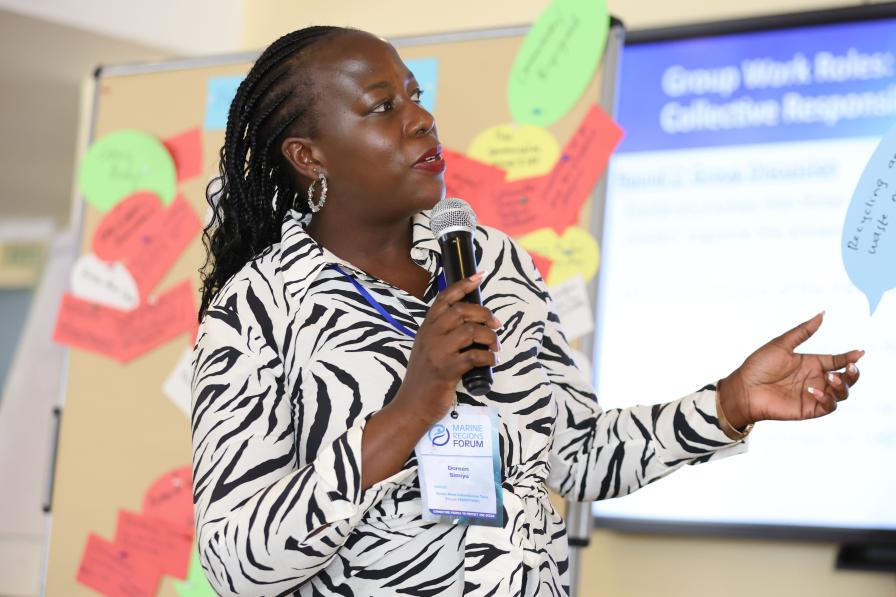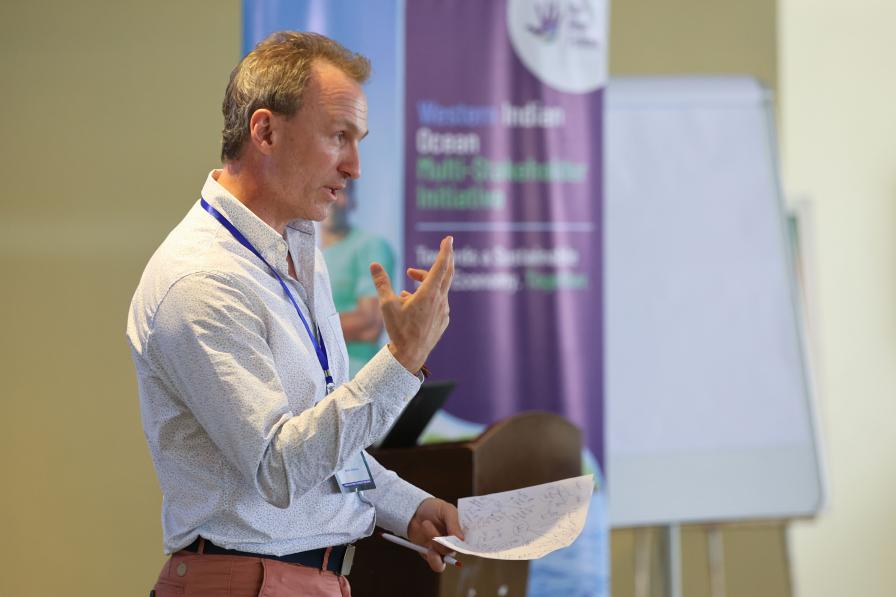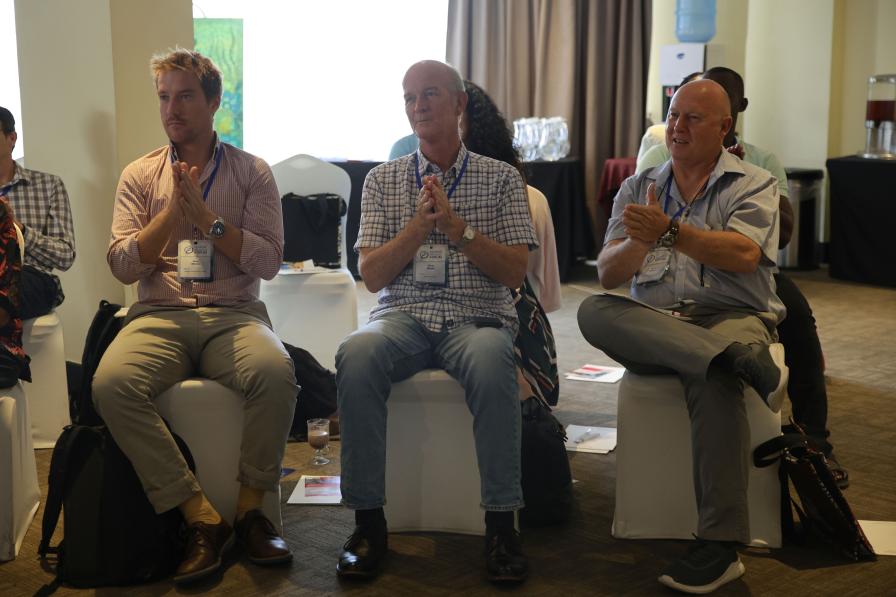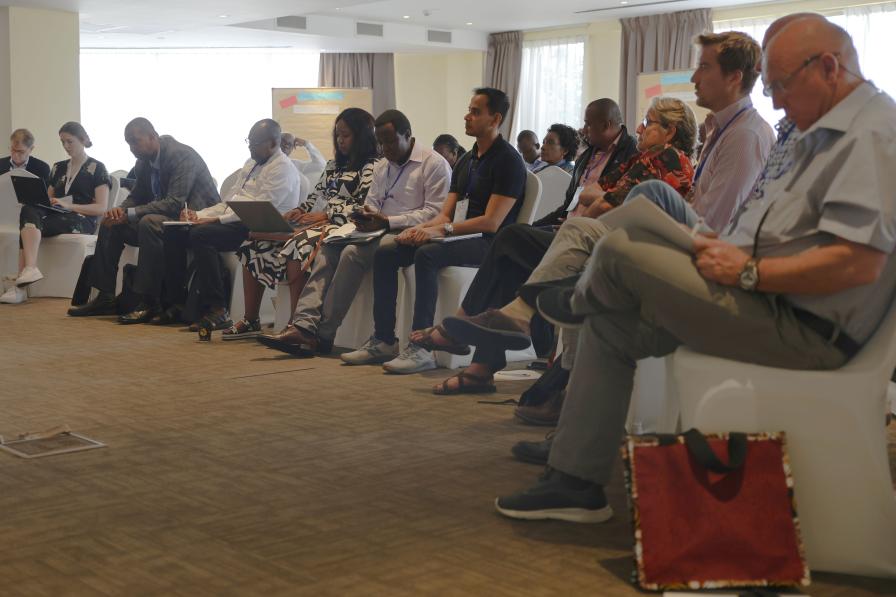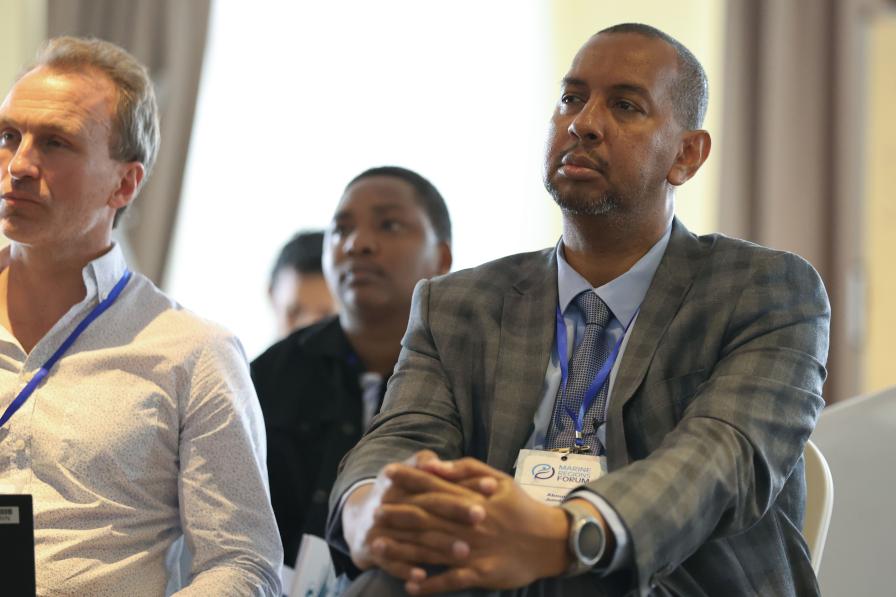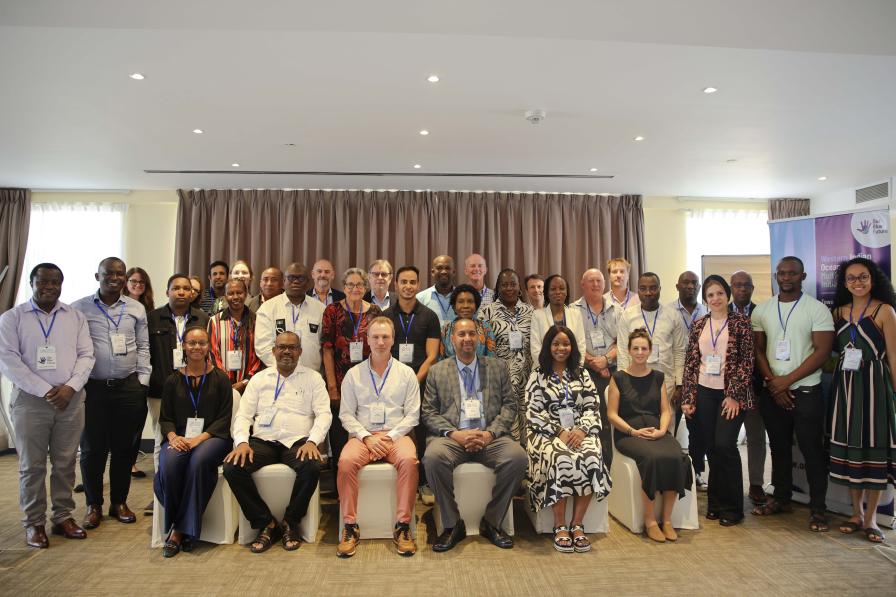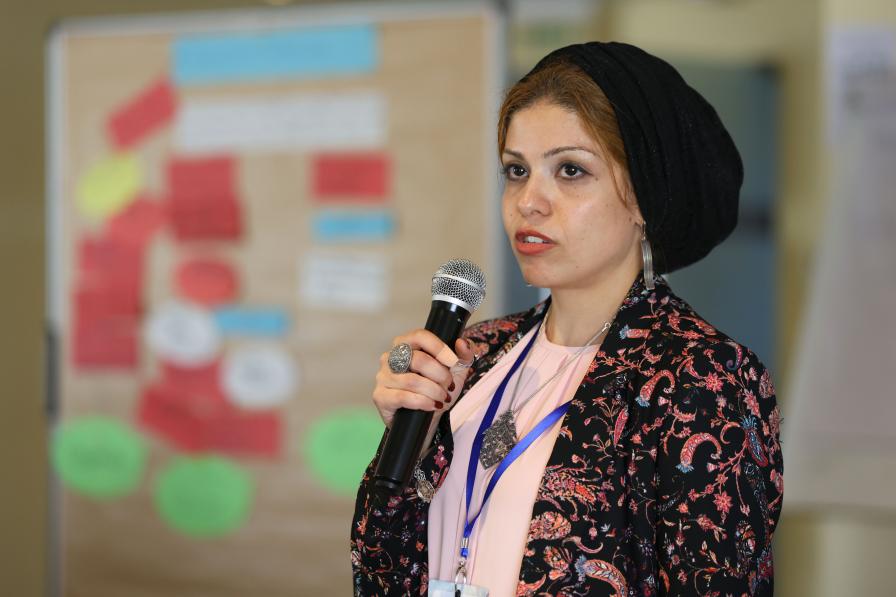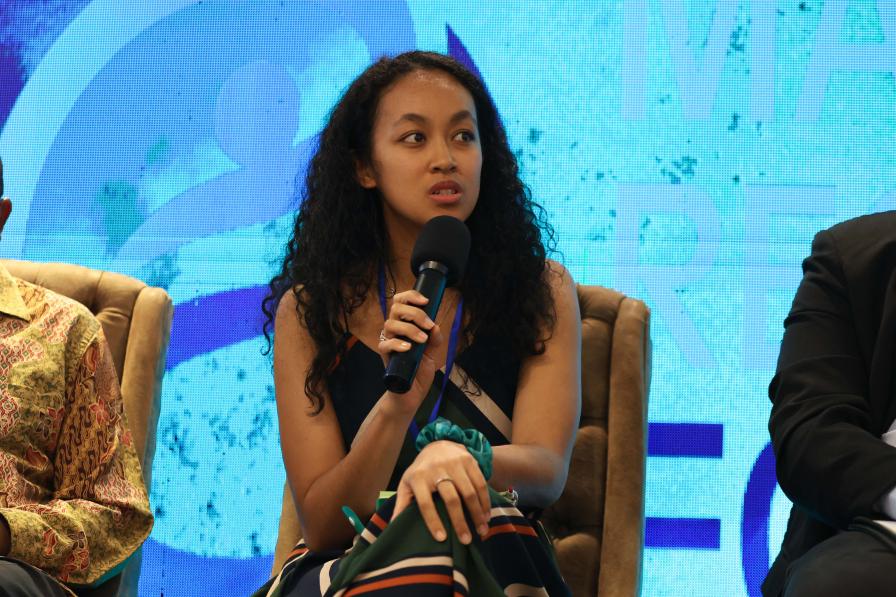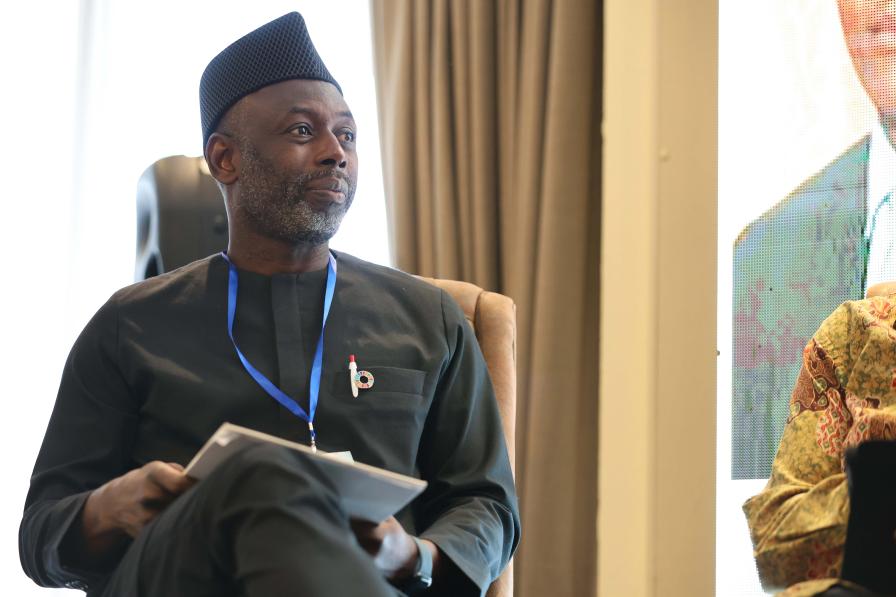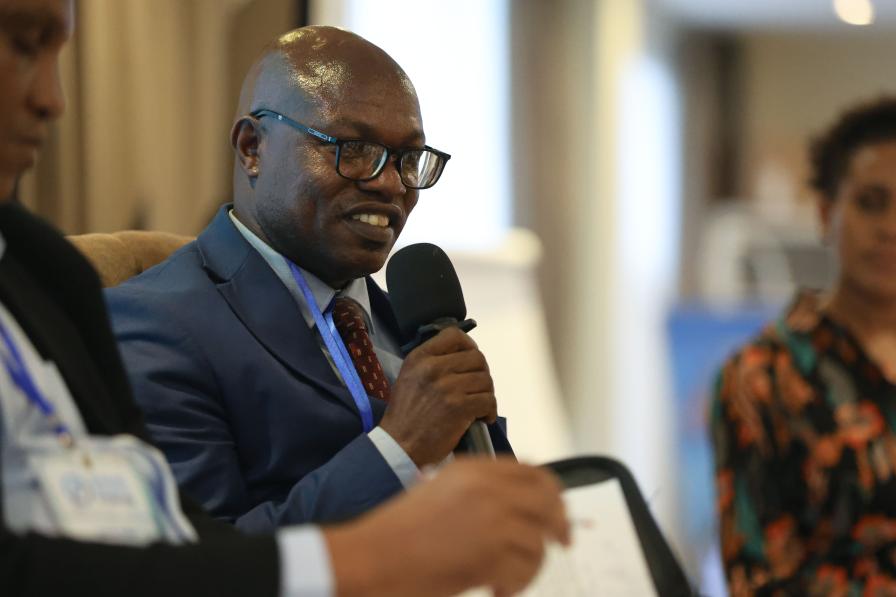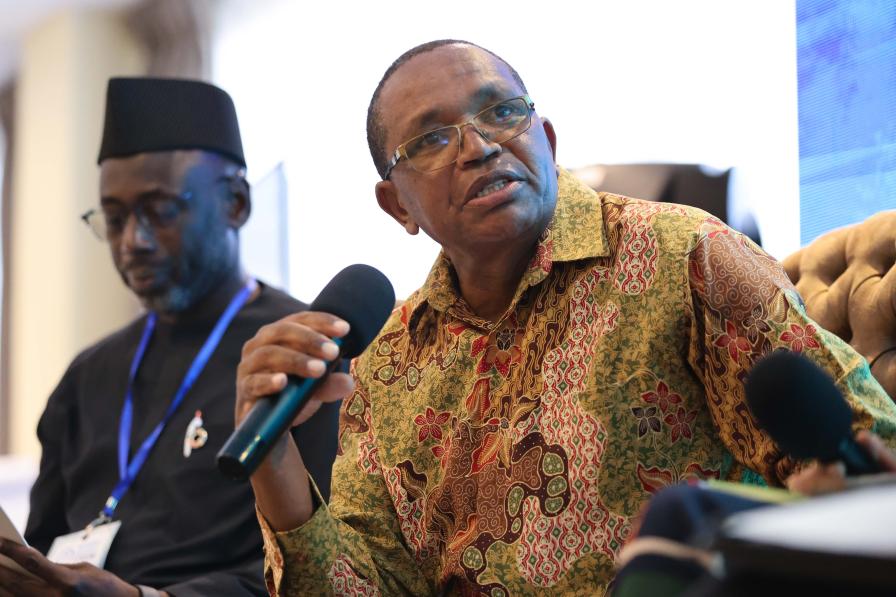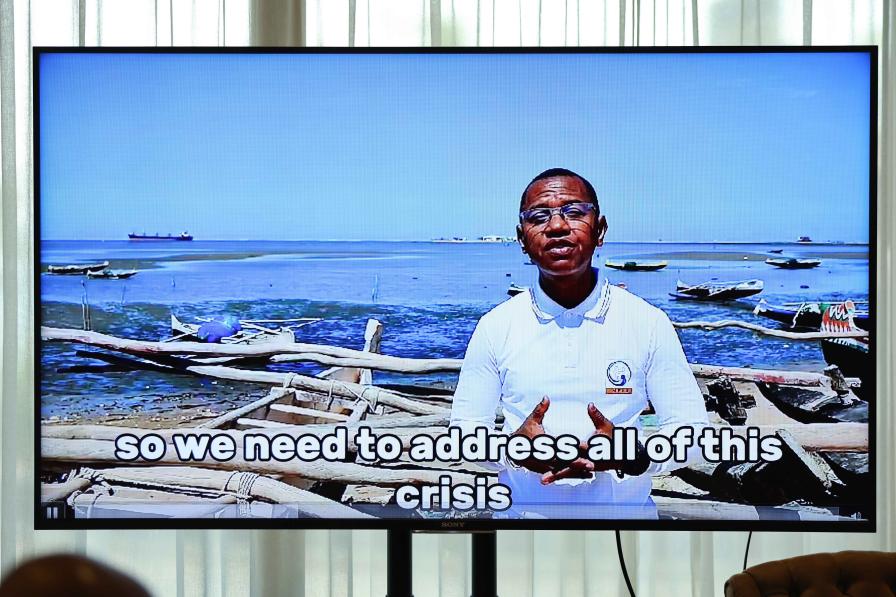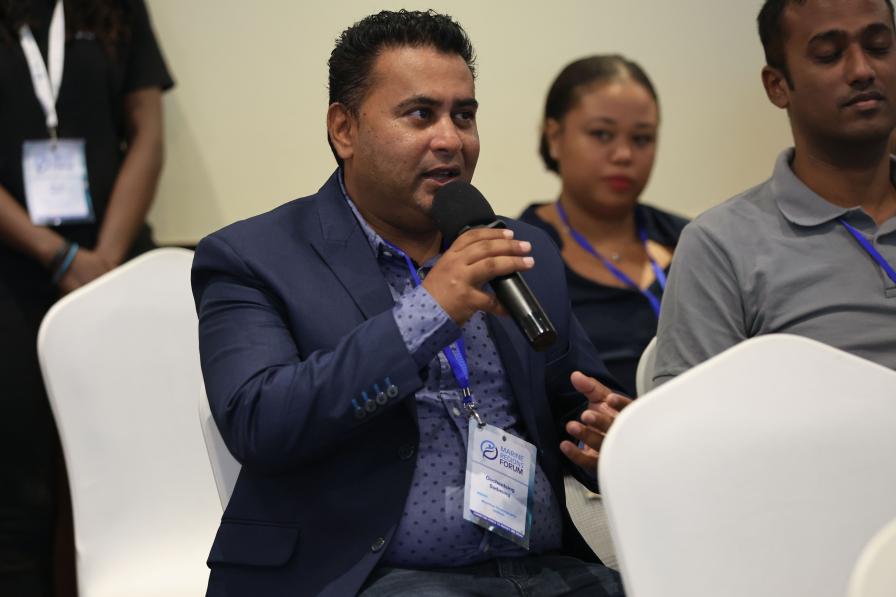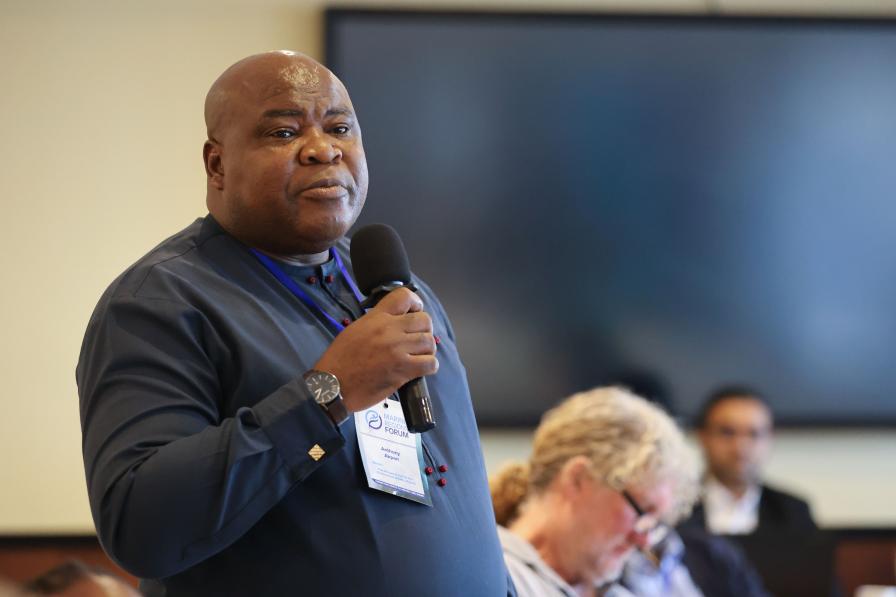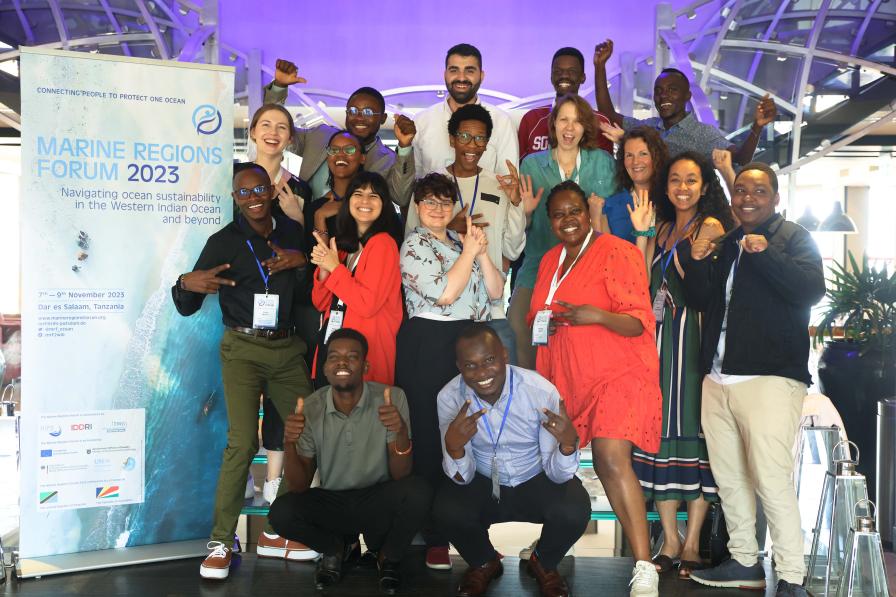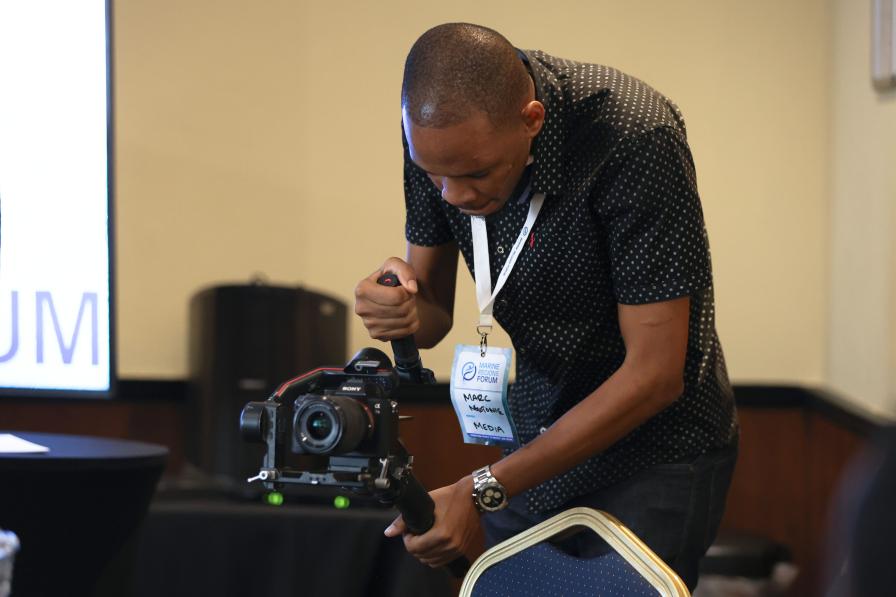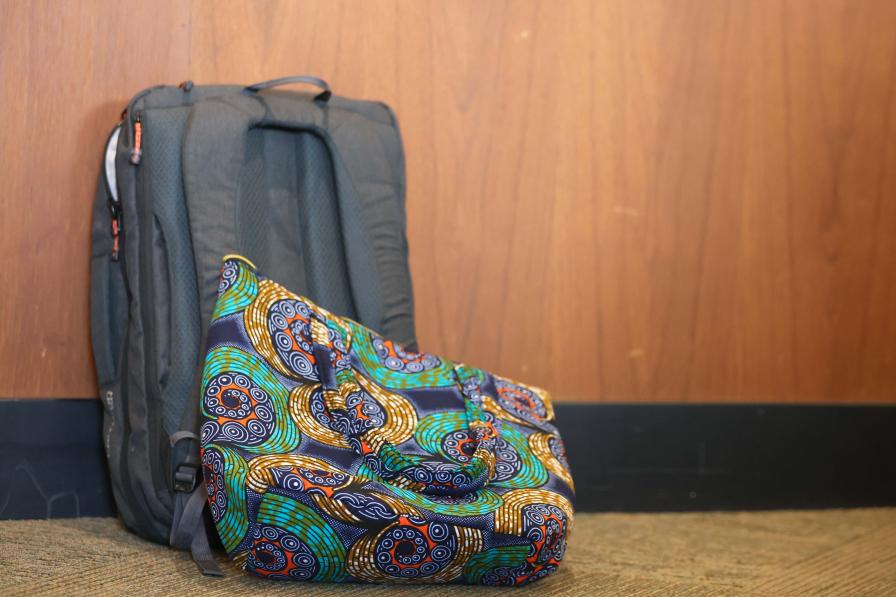The final day of the meeting convened under the theme of Implementation, shifting the focus of the conference towards practical application, and strategies for turning ideas into action, overcoming challenges, and implementing initiatives. Participants shared knowledge on different ways of ensuring the discussions from the Marine Regions Forum 2023 translate to tangible outcomes and results.
Fostering a Sustainable Blue Economy
Advancing private sector involvement in ocean sustainability and governance in the Western Indian Ocean (WIO): Edward Kimakwa, Western Indian Ocean Governance Initiative (WIOGI), chaired the session noting the role played by the private sector in catalyzing sustainable blue economy.
In his opening remarks, Aboud Jumbe, Principal Secretary, Ministry of Blue Economy and Fisheries, Zanzibar, remarked that the private sector can play an important role in unlocking the WIO’s unique natural capital and thus catalyzing a sustainable blue economy.
Georges Mba-Asseko, Head, Blue Economy Division, African Union Commission (AUC), said the session is important in supporting the region achieve the blue economy aspirations of the AU Agenda 2063, “The Africa We Want.”
Participants discussed ways to ensure that private sector contributions are made more impactful and highlighted their role in financing inclusive a sustainable blue economy transition in the WIO.
Implementing Global Goals at the Regional Level
Conservation and sustainable use of high seas biodiversity: What’s at stake in the WIO? Kerry Sink, South African National Biodiversity Institute, highlighted the interconnectedness of the ocean, pointing out that biodiversity within the Exclusive Economic Zone (EEZ) of coastal states affects high seas biodiversity.
The session also focused on the importance of the Agreement under the UN Convention on the Law of the Sea on the Conservation and Sustainable Use of Marine Biological Diversity of Areas beyond National Jurisdiction (BBNJ Treaty) for regional fisheries management organizations and for strengthening collaborations for high seas biodiversity conservation.
Tackling the Triple Planetary Crisis
Coastal adaptation in the WIO: From theory to practice: This session focused on the role of the coast and Ocean in the adaptation measures under the UN Framework Convention on Climate Change (UNFCCC).
Judy Beaumont, International Ocean Institute South Africa, highlighted the sixth assessment report (AR6) of the Intergovernmental Panel on Climate Change (IPCC) and discussed the chapter on Africa, which outlines, among others: key risks from climate change; sea level rise and the implications for growing African cities; and climate change-related risks to marine fisheries.
Participants engaged in a discussion on the need for focused guidance on coasts and the Ocean in adaptation measures. They stressed the need to translate data to meaningful information that can be used by stakeholders at all levels.
Plenary on Shaping the Path Ahead
During the afternoon plenary session, Ella Naiman, Empower, chaired a panel discussion consisting of: Dustan Shimbo, Vice President's Office, Tanzania; Denis Mataiken, Ministry of Agriculture, Climate Change and Environment, Seychelles; Kareen Andriantsiferana, WWF Madagascar; Dixon Waruinge, Nairobi Convention Secretariat; and Abdoulaye Diagana, Abidjan Convention.
Panelists reflected on the three days of the meeting and shared their highlights based on the daily themes of inclusion, innovation, and implementation. They shared, among others, their appreciation of new technologies and data for solutions. Participants heard the call to involve youth more actively and to ensure inclusive participation from the grassroots level to top decisionmakers.
Via video message, Paubert Mahatante, Minister for Fisheries and Blue Economy, Madagascar, highlighted the importance of addressing the triple planetary crisis, particularly for small island states. He expressed hope the meeting outcomes will catalyze action for future generations.
In her closing remarks, Barbara Neumann, Marine Regions Forum, noted the 2023 Forum has been a major milestone since its establishment in 2017, and the first Forum in 2019. She remarked that the Marine Regions Forum 2023 has achieved the objective of providing a co-creative space, highlighting that the conference has brought together close to 160 experts from around the world.
In a vote of appreciation, Shannon Hampton, Research Institute for Sustainability Helmholtz Centre Potsdam (RIFS), expressed thanks to the funders, partners, participants, and all who worked tirelessly to ensure the success of the meeting.
She closed the conference at 17:38pm EAT.
To receive free coverage of global environmental events delivered to your inbox, subscribe to the ENB Update newsletter.
All ENB photos are free to use with attribution. For the Marine Regions Forum 2023, please use: Photo by IISD/ENB | Anastasia Rodopoulou
